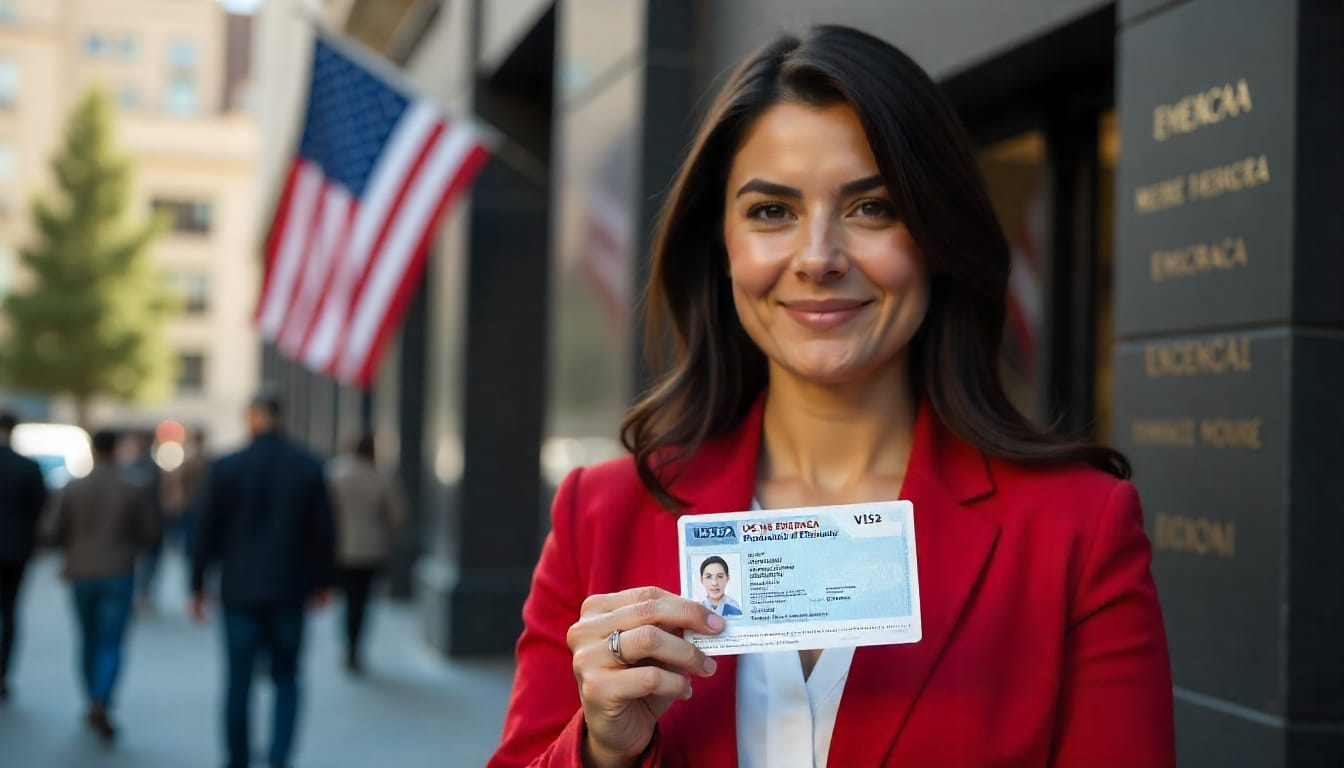Curious about the Startup Visa USA? Discover everything founders need to know, from what a startup visa is to the best U.S. entrepreneur visa options like the O-1 visa and E-2 visa for startups. Learn approval rates, real-world examples, and how Beyond Border can help.

If you’re a founder dreaming of building your company in the U.S., you’ve probably typed Startup Visa USA into Google at least once. We get it. The U.S. has always been the center of entrepreneurship, think Silicon Valley, New York startups, or Austin’s buzzing tech scene. But here’s the reality: the U.S. doesn’t technically have a visa called “Startup Visa.” Instead, there are pathways designed for talented founders like you to bring ideas to life on American soil. At Beyond Border, we work with entrepreneurs who feel stuck between opportunity and paperwork. We’ve seen firsthand how confusing visa choices can slow down ambitious founders. That’s why this guide breaks it all down, no jargon, just plain talk about your options.
The term startup visa is often thrown around, but what does it mean? Simply put, it’s a visa that allows foreign entrepreneurs to live in a country while they build and grow their business. Countries like Canada and the U.K. have dedicated startup visas, but the U.S. doesn’t have an official one. Instead, the Startup Visa USA is more of a concept, pointing to visa categories that founders can use. If you’re an international entrepreneur, that means piecing together the right option depending on your profile, funding, and plans. For example, you may qualify under extraordinary ability criteria, or through investment.
So, if the U.S. doesn’t have a direct startup visa, what are the real options? Here’s a breakdown founders often consider:
The O-1 visa for startup founders is often the go-to for ambitious entrepreneurs. It’s designed for individuals who’ve demonstrated “extraordinary ability” in business, science, or technology. That might sound intimidating, but in plain terms, it means you’ve achieved things that set you apart from the average professional. Maybe you’ve raised venture capital, been featured in the press, or built something innovative. The O-1 lets you stay in the U.S. for an initial three years, with unlimited one-year extensions. For founders, this flexibility is gold. Imagine building your company in Silicon Valley while also raising funding from American investors, it becomes much easier with legal status in place. We’ve helped countless founders navigate this pathway, and with the right evidence, it’s more attainable than many realize.
The E-2 visa for startups is another popular option, especially if you’re ready to invest in your business. To qualify, you need to be from a country that has a treaty with the U.S., and you’ll need to show you’re investing a “substantial” amount in a real, active business. What counts as substantial? It’s not a fixed number, but usually $100,000 as a start. Pro tip: the business doesn’t need to be huge. E2 visa business examples range from tech startups to restaurants and service companies. The visa is renewable as long as your business continues operating, making it perfect for founders who want control over their venture.
Each case is unique, but what matters is that the business is real, scalable, and not just a “side hustle.” Founders often assume only massive investments qualify, but that’s not true. Even lean, early-stage ventures can meet the criteria if structured properly.

The L-1 visa is a powerful option for startup founders who already operate an overseas company and want to expand into the U.S. It allows you to transfer key personnel, including yourself as the founder, from your foreign entity to a new or existing U.S. office.
For startups, this means you can set up a U.S. branch and legally manage it while keeping ties to your home country operations. Initially, new offices qualify for a one-year L-1 visa, but it can be extended up to seven years if the business shows growth.
The L-1 is particularly useful for scaling entrepreneurs who already have traction abroad and want access to U.S. markets, talent, and investors. At Beyond Border, we’ve worked with founders who used the L-1 as a stepping stone, later transitioning to permanent residency once their U.S. branch was established.
A common question we get is whether single founder startups can even qualify for U.S. visas. The short answer: yes, but it depends. For the O-1 visa, being a single founder can actually work in your favor if you’ve built a strong track record as the face of your company. For the E-2 visa, it’s more about proving your business has potential to grow and employ people in the future. So, don’t worry if you’re not backed by a massive team. Many of our clients at Beyond Border started as solo founders and later expanded once they secured their visa.
One thing every founder wants to know: what are the US visa approval rates? It’s a fair question, but approval depends heavily on preparation. For O-1 visas, rates are strong when petitions are well-documented, often over 90%. For E-2 visas, approval depends on the quality of your investment and business plan. Weak applications or poorly explained investments can lead to denials.. That’s why founders who work with expert guidance, like at Beyond Border, usually see better outcomes. We always remind clients that the U.S. isn’t trying to keep entrepreneurs out. They just want proof you’re serious and qualified to contribute to the economy.
Each profile highlights different strengths, innovation, investment, recognition, or traction. That’s why there isn’t one “perfect” startup founder. Instead, success comes from matching your personal story to the visa criteria.

When people search for an entrepreneur visa in the United States, they’re usually asking: which one is right for me? Here’s the simple breakdown:
Each option has trade-offs, but the important part is that there are options. And you don’t have to figure it out alone.
The visa journey is tough to handle solo, and that’s where we come in. At Beyond Border, we’ve worked with hundreds of founders across industries, from tech to design. We know how to frame your story so it resonates with U.S. immigration officers. We also stay by your side from eligibility checks through approval, because immigration isn’t just paperwork, it’s personal. We understand the pressure of pitching investors while juggling visa worries. We’ve been part of that process with clients, and it’s why we built a service that combines strategy, legal expertise, and founder-friendly support.
Building a startup in the U.S. is about more than just ambition, it’s about access. Access to talent, investors, and markets. While there isn’t an official Startup Visa USA, pathways like the O-1 visa for startup founders and the E-2 visa for startups make it possible for entrepreneurs worldwide to plant their flag in America. With preparation, a clear strategy, and the right support, your startup journey can cross borders seamlessly. At Beyond Border, we believe in founders who think big and act boldly. If you’re ready to explore your US startup founder visa options, we’d love to guide you every step of the way.